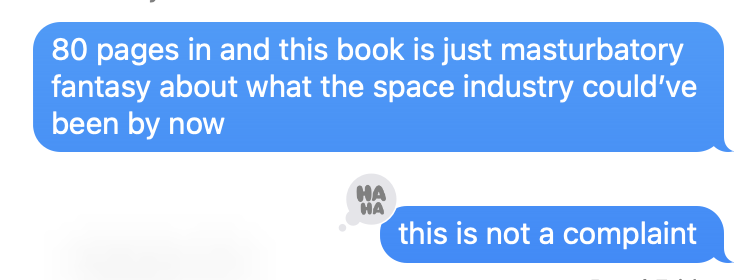This book caught my attention so much more thoroughly than I expected it to. The magic system is fascinating: we start off with the titular character, a spellbreaker—one of a small group of people born with the natural ability to break spells cast by others. And, as it turns out, to sense their presence in a way that the actual spellcasters (or, as they’re called, aspectors) cannot. It goes into more detail: there’s four types of spells, and the way the casting system works feels… honestly a great deal like it was originally designed to be the setting for a videogame. Learn a spell by consuming Magic Points, and then after that you can cast it at will until you’re tired out and need to rest? That’s a writer, explaining a game mechanic.
So, we have a fascinating setting. And then we have two fascinating characters: Bacchus Kelsey, a wealthy scion, up for his mastery examinations in magic… and running face-first into a wall of “it is the 1800s and Britain is very racist”. And then there’s Elsie Camden, the (illegally) unregistered spellbreaker, who lives a double life. Mild-mannered—or rather, well-raised and -behaved—administrative assistant by day, vigilante spellbreaker by night, going on secretive missions to help the downtrodden masses. Magic, after all, may be magic, but it’s also a form of power… and power corrupts.
I was locked in to the book fairly early on, but by the end I couldn’t put it down. An absolutely delightful read, I highly encourage you to check it out.1
- This is a Bookshop affiliate link – if you buy it from here, I get a little bit of commission. It won’t hurt my feelings if you buy it elsewhere; honestly, I’d rather you check it out from your local library, or go to a local book store. I use Bookshop affiliate links instead of Amazon because they distribute a significant chunk of their profits to small, local book stores. ↩
